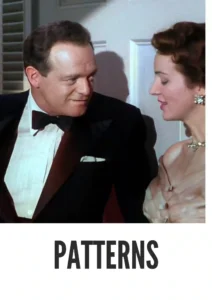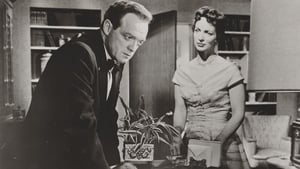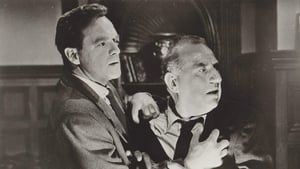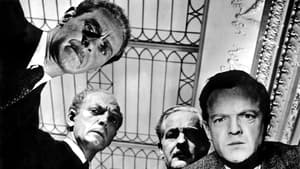Video Sources 0 Views

Download Patterns (1956) Colorized HD | Van Heflin | Corporate Intrigue Drama
Synopsis

Delve into the ruthless landscape of corporate ambition with Patterns, a compelling drama from 1956, now meticulously colorized to bring its stark portrayal of big business into sharper focus. Starring Van Heflin and Everett Sloane, this film, directed by Fielder Cook, offers a gripping narrative of morality, ambition, and the human cost of success. Ideal for fans of thought-provoking dramas and those interested in the socio-economic commentary of the era, this HD download presents a timeless story with renewed visual impact. Patterns pulls no punches in its depiction of the corporate climb, making it a relevant and resonant watch even today. This movie was also released as Patterns of Power.
Patterns tells the story of Fred Staples (Van Heflin), a bright and ambitious young executive who is brought into a large corporation with the promise of a fast-track to the top. He quickly finds himself caught in a power struggle between the company’s aging president, Walter Ramsey (Everett Sloane), and the ruthless senior vice president, William Briggs (Ed Begley).
As Fred navigates the cutthroat corporate environment, he witnesses the manipulative tactics and moral compromises required to succeed. Briggs is determined to oust Ramsey, seeing him as an obstacle to his own ambitions. Fred is used as a pawn in their power game, forced to make difficult choices that challenge his values and principles. The film explores the themes of conformity, ethical dilemmas, and the psychological toll of corporate pressure. Patterns offers a stark and unflinching look at the human cost of ambition, portraying the personal sacrifices and betrayals that occur in the pursuit of success.
The film features a stellar cast of actors who vividly portray the complex characters:
-
Van Heflin as Fred Staples
-
Everett Sloane as Walter Ramsey
-
Ed Begley as William Briggs
-
Beatrice Straight as Nancy Staples
-
Elizabeth Wilson as Marge Fleming
Patterns falls into the genre of corporate drama, with elements of social commentary and psychological thriller. Its focus on power dynamics, ethical dilemmas, and the human impact of corporate decisions makes it a compelling and thought-provoking film.
Released in 1956, Patterns reflects the growing influence of corporate culture in American society during the post-World War II era. The film explores the themes of conformity, ambition, and the ethical compromises that often accompany success in the business world. It offers a critical perspective on the human cost of corporate power and the pressures faced by individuals striving to climb the corporate ladder. Patterns captured the zeitgeist of the time, sparking conversations about the responsibilities of corporations and the impact of their decisions on individuals and society.
This colorized version of Patterns has been carefully restored using advanced digital techniques, enhancing the visual elements while maintaining the film’s original atmosphere of tension and drama. The colorization process involved a meticulous analysis of the original black and white footage, with careful attention paid to recreating accurate and realistic colors. Sophisticated algorithms were used to select appropriate color palettes and enhance image details, bringing new depth and vibrancy to the characters and settings. This painstaking process offers a fresh perspective on the film, making it more accessible and engaging for contemporary audiences while preserving its historical and artistic significance.
-
: Fielder Cook
-
: Rod Serling
-
: Rod Serling’s “Patterns” (Kraft Television Theatre)
-
: Boris Kaufman
-
: Carl Lerner
-
: Michael Myerberg Productions
-
: United Artists
-
: 83 minutes
-
: MP4
-
: HD (1080p)
-
: Compatible with most devices, including smartphones, tablets, computers, and smart TVs.
Patterns (1956) was widely praised for its sharp writing, strong performances, and insightful commentary on corporate culture. Based on Rod Serling’s acclaimed television play, the film tackles complex themes of power, ambition, and morality with intelligence and nuance. Critics lauded the film for its realistic portrayal of the corporate world and its unflinching examination of the ethical dilemmas faced by individuals in positions of power. Patterns remains a relevant and thought-provoking film, offering valuable insights into the dynamics of corporate life and the human cost of success.
-
: What is Patterns about?
-
A: Patterns is a corporate drama about a young executive who becomes entangled in a power struggle between the company’s president and a ruthless senior vice president.
-
-
: Is Patterns (1956) based on a play?
-
A: Yes, Patterns is based on a television play of the same name written by Rod Serling.
-
-
: Is this version of Patterns colorized?
-
A: Yes, this version has been professionally colorized to enhance the viewing experience.
-
-
: What are the main themes of Patterns?
-
A: The main themes of Patterns include power, ambition, ethical dilemmas, and the human cost of corporate success.
-
-
: What is the download format?
-
A: The download format is MP4, which is compatible with most devices.
-
-
: What resolution is the download?
-
A: The resolution is HD (1080p), providing a high-quality viewing experience.
-
Watch Patterns Today!









